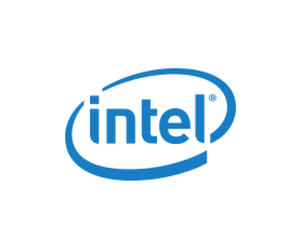The cancellation of nearly all college athletics has hit colleges and universities hard, as revenue from corporate sponsors, ticket sales and concession stands disappears. Without a team to rally around, the loss of traditional fall sports can also take a toll on morale. The good news is that esports is currently boosting spirits — and the bottom line.
At the college level, competitive esports leagues bring students together to test their skills in games like Rocket League, Overwatch, Super Smash Bros. and Fortnite. Such leagues have become a mainstream fixture on campuses, with some 175 colleges and universities hosting varsity esports teams.
Many educators and athletic directors find esports a natural fit for today’s young people. Roughly 97 percent of teen boys and 83 percent of teen girls play video games, according to the latest report from Pew Research Center. And there’s an audience too: Business Insider Intelligence predicts 600 million consumers worldwide will watch esports by 2023 — a 79 percent increase since 2017.
LEARN MORE: Streamline esports management with Intel’s Endpoint Management Assistant.
But launching and managing a lucrative esports program is no easy feat. Many technological challenges arise when supporting a competitive video gaming program. Especially when students are playing on diverse devices from remote locations, it can be difficult to control costs, support remote devices and ensure positive player experiences.
But tools like Intel’s Endpoint Management Assistant (EMA) — which is a part of the Intel vPro platform — can help. By delivering efficient, affordable and secure device management, EMA can help universities and colleges establish a smooth and secure esports experience.
Esports Challenges in the New Normal
Rather than convening in a common gaming room — as students did before the pandemic —players must compete from their homes or dorms. They can still compete among themselves and against rival schools via shared online platforms, but heterogeneous devices and remote deployments can drive up costs.
Across the higher education landscape, IT professionals must manage and secure a wide array of gaming devices. Gamers need reliable equipment, and IT departments must ensure all devices operating outside the firewall are secure against emerging cyber risks.
A device management platform such as Intel EMA can reduce the expenses associated with this effort while ensuring student-athletes can deliver peak performance.
MORE ON EDTECH: See how West Point's esports team reached its goals during COVID-19.
Tips for Solving Remote Esports Challenges
Intel Endpoint Management Assistant supports remote gamers by helping colleges and universities protect devices, simplify management and take control of their technologies.
By using Intel EMA, IT staffs can maximize the management benefits of the Intel vPro platform.
They’re able to initiate and monitor the progress of a system rebuild, collect hardware asset data or initiate a power-on for system patching. Real-time data can be used to identify changes in configuration and improve resolution time against service-level agreements (SLAs) while also addressing key performance indicators (KPIs).
As an integral part of the Intel Active Management Technology (AMT) suite, EMA helps IT teams define policies that allow automatic check-ins. These check-ins can occur even when device operating systems are unresponsive, powered off or outside of the enterprise. This helps IT departments develop a more effective management style and better reach remote systems.
Intel EMA makes Intel AMT easy to configure and use. IT can manage devices equipped with Intel vPro platform technology without disrupting workflow, thus simplifying client management and reducing overall management costs.
Intel’s management technology enables administrators to wake devices at predefined times. This helps ensure client systems receive critical software updates and upgrades. The technology can also configure existing toolsets to power on systems securely and remotely. In doing so, colleges and universities reduce the risk of noncompliant systems connecting to the esports ecosystem and lower the likelihood of breaches.
Through a secure cloud connection from back-end servers to end clients, EMA enables seamless, efficient updates and monitoring with minimal disruptions to end-user workflow. This allows esports directors and their IT partners to remotely access and control unattended devices, regardless of their state or location, and to improve incident management.
Supported by these powerful device management capabilities, colleges and universities can save time and money as they guide their vibrant esports programs through challenging times.
When students are geographically dispersed, it can be time-consuming and costly to diagnose and resolve software-related issues. With the ability to address many of these issues remotely from a centralized location, it is possible to significantly reduce the number of IT help calls, minimize human intervention and ultimately lower the cost of support.
With streamlined device lifecycle management, IT can ensure a higher level of security. Perhaps most important, consistent controls over deployed devices can elevate the player experience. When students compete remotely on devices that are secure and current, they’ll be ready to bring their best performance — even during tumultuous times.
Brought to you by:














